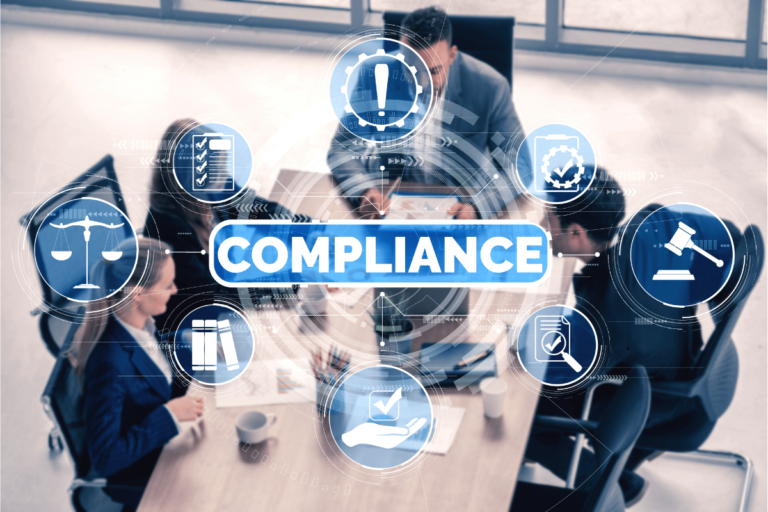Leadership Strategies for Effective Conflict Resolution
Navigating conflicts within a professional setting demands a delicate balance of leadership skills and emotional intelligence. Leaders who can adeptly handle disputes contribute significantly to a cohesive work environment and improved team dynamics.
By understanding the nuances of conflict resolution strategies, leaders can effectively diffuse tense situations and guide their teams towards mutually beneficial resolutions. The ability to communicate assertively, listen actively, and foster empathy are just a few components of successful conflict resolution.
As we explore the intricate dance of leadership strategies for conflict resolution, we uncover the essential elements that pave the way for harmonious workplace interactions and successful outcomes.
Key Takeaways
- Practice reflective thinking and delay responses for effective conflict resolution.
- Equip leaders with conflict resolution tools and training for better outcomes.
- Foster a collaborative approach and support leaders in navigating challenging situations.
- Develop active listening skills and enhance communication to resolve conflicts efficiently.
Reflective Thinking Benefits Conflict Resolution
How can reflective thinking enhance conflict resolution strategies for leaders seeking to navigate challenging workplace situations effectively?
Critical analysis is a fundamental aspect of reflective thinking that allows leaders to delve deeper into the root causes of conflicts, enabling them to make informed decisions. By engaging in reflective thinking, leaders can evaluate different perspectives, assess the implications of their actions, and consider alternative solutions.
This process facilitates effective decision-making techniques by promoting a thorough examination of the situation before responding. Furthermore, reflective thinking encourages leaders to pause, analyze, and strategize, leading to more thoughtful and calculated responses in conflict resolution scenarios.
Ultimately, incorporating reflective thinking into conflict resolution strategies equips leaders with a valuable tool to navigate complex workplace dynamics with insight and precision.
Importance of Delayed Responses in Conflict
In navigating challenging workplace situations effectively, leaders can significantly benefit from recognizing the importance of delaying responses in conflict resolution. Conflict de-escalation is often best achieved through a strategic pause before formulating a thoughtful reply.
This delay allows for emotional regulation, giving leaders the opportunity to respond rationally rather than react impulsively. By taking the time to consider the situation from all angles and weighing the potential outcomes, leaders can navigate conflicts with a clearer perspective.
This practice not only fosters a more constructive dialogue but also demonstrates a level-headed approach to conflict resolution. Embracing delayed responses as a key strategy showcases leadership maturity and a commitment to resolving conflicts effectively.
Flexibility as a Key Leadership Trait
Demonstrating adaptability and flexibility is paramount for leaders seeking to navigate complex challenges and effectively lead their teams towards successful conflict resolution. In today's dynamic work environments, adaptive leadership and flexibility training are essential components for leaders striving to address conflicts with agility and insight.
Here are three key ways flexibility serves as a crucial leadership trait:
- Embracing Change: Leaders who are flexible can readily adapt to evolving circumstances, making them better equipped to handle conflict situations that require quick thinking and adjustment.
- Open-Mindedness: Flexibility fosters open-mindedness, allowing leaders to consider diverse perspectives and innovative solutions when resolving conflicts.
- Building Resilience: Being flexible helps leaders bounce back from setbacks, maintaining composure and guiding their teams through challenging conflict scenarios with confidence.
Demonstrating Leadership in Conflict Resolution
Flexibility and adaptability are pivotal qualities essential for leaders when demonstrating effective conflict resolution strategies within their teams. In showcasing leadership qualities during conflict resolution, it is crucial for leaders to remain open-minded, empathetic, and strategic.
By employing conflict resolution strategies such as active listening, reflective thinking, and effective communication, leaders can navigate through challenging situations with finesse. It is imperative for leaders to lead by example, showing integrity and professionalism throughout the conflict resolution process.
Moreover, empowering leaders with the necessary tools and training in conflict resolution techniques can enhance their ability to manage workplace conflicts efficiently. Ultimately, by embodying strong leadership qualities and implementing proven conflict resolution strategies, leaders can foster a harmonious and productive work environment.
Collaborative Approach to Conflict Resolution
Employing a collaborative approach in conflict resolution fosters a harmonious and productive work environment through shared decision-making and mutual understanding among team members. This method encourages individuals to work together towards a common goal, leveraging the strengths and insights of each team member.
A collaborative approach to conflict mediation involves:
- Enhancing Communication: Open and transparent communication is key to understanding different perspectives and finding common ground.
- Building Trust: Establishing trust among team members creates a safe space for sharing concerns and exploring solutions together.
- Promoting Team Cohesion: Strengthening relationships within the team fosters a supportive environment where conflicts can be resolved constructively.
Equipping Leaders With Conflict Resolution Tools
To support leaders in effectively managing workplace conflicts, it is essential to provide them with tailored conflict resolution tools. These tools enhance their ability to navigate challenging situations with competence and confidence.
Equipping leaders with conflict resolution techniques is crucial for fostering a positive work environment and promoting effective teamwork. Leadership development plays a significant role in preparing leaders to handle conflicts constructively. It emphasizes the importance of emotional intelligence and adaptability.
By offering training on conflict resolution strategies, organizations empower their leaders to address issues promptly and professionally. Providing resources for managing workplace conflicts and encouraging continuous learning on conflict resolution further strengthens leaders' capabilities in resolving disputes efficiently.
Ultimately, supporting leaders in conflict resolution not only enhances organizational harmony but also cultivates a culture of open communication and collaboration.
Supporting Leaders in Challenging Situations
In navigating challenging situations, providing unwavering support to leaders is paramount for fostering resilience and effective decision-making. Supporting leaders during crises requires a combination of empathy, strategic guidance, and practical assistance.
Here are key ways to support leaders in challenging situations:
- Leadership guidance: Offer clear direction and mentorship to help leaders navigate the complexities of the situation.
- Crisis management: Provide resources and tools specifically tailored for crisis management to aid leaders in making informed decisions under pressure.
- Emotional support: Create a safe space for leaders to express their concerns and feelings, promoting mental well-being and clarity in decision-making processes.
Conclusion
In conclusion, effective conflict resolution in leadership requires a combination of reflective thinking, flexibility, and collaborative approaches.
By equipping leaders with the necessary tools and skills, such as active listening and empathy, teams can navigate through conflicts towards mutual understanding and cooperation.
While some may argue that conflicts are unavoidable in any work environment, it is the way leaders address and resolve them that ultimately determines the success and productivity of the team.







